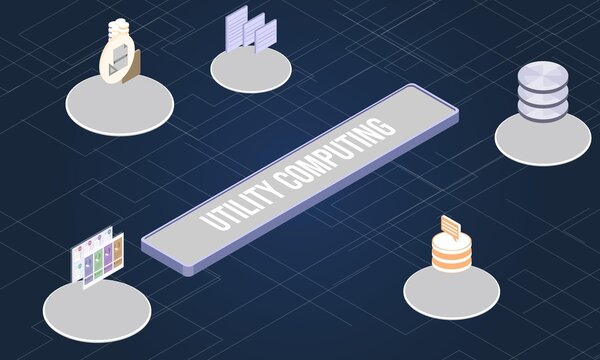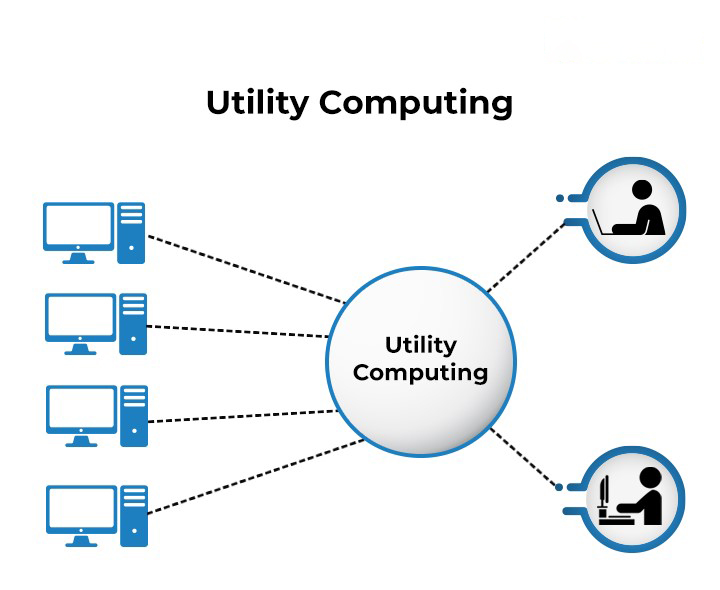What is Utility Computing?
Utility computing is defined as a service provisioning model that offers computing resources to clients as and when they require them on an on-demand basis. The charges are exactly as per the consumption of the services provided, rather than a fixed charge or a flat rate.
What is Utility Computing?
Utility computing refers to the utility computing technologies and the business models that are offered by a service provider to IT customers. The client is charged as per their consumption. Examples of these IT services are storage, computing power, and applications.
The term utility is the utility services like water, telephone, electricity, and gas that are provided by any utility company. Similarly, the customer when receives utility computing, its computing power on the shared computer network bills is decided based on the consumption which is measured.
Utility computing is similar to virtualization and the total web storage space amount with the computing power that is made available to the user is higher as compared to a single time-sharing computer. The web service is possible through several backend web servers. The web servers could be dedicated and used as a cluster form which is created and then gets leased to the end-user. Distributed computing is the method where a single such calculation is done on multiple web servers.

Utility Computing examples
Almost any activity that can be replicated in a data center can be replicated in a utility computing service. The following services are available:
- file, application, and web server access;
- Infrastructure as a Service (IaaS), software as a Service (SaaS), and platform as a Service (PaaS) are examples of IaaS.
- processing power and calculation storage space are almost limitless;
- client computing application support;
- space for data, databases, and applications to be stored;
- cloud computing and cloud storage
- Power, heating, ventilation, and air conditioning (HVAC), as well as communications, are examples of utility services.
- technical knowledge in the field of information technology in general;
- ransomware response and application development are examples of specialized skills.
Advantages
- The customer does not have to buy the software, hardware, and licenses that are required to do the business. He instead relies on a provider for these services. The client also is not burdened with administrating and maintaining the system which is taken care of by the utility computing company.
- The company has the liberty to subscribe to a single service and use the same software suite throughout the entire organization
- Utility computing is also compatible which is especially needed in a large company that has many departments. Each department could be using a different software suite which makes the files from one department to be incompatible with the software used by another department. Through utility computing, a single service can be used throughout and the same software suite is used across the department.
Disadvantages
- limited access to vendor facilities and resources;
- reluctance or refusal of vendors to discuss how they handle customer needs;
- inability to actively manage and maintain IT equipment and systems;
- vendor data breaches that could impact customer systems and data;
- colocation of customer systems and data with other customers;
- theft of customer data by rogue vendor employees;
- damage to customer systems and applications by rogue vendor employees;
- accidents that disrupt customer operations;
- reluctance of vendors to honor — or even agree to — customer service-level agreements;
- reluctance or refusal of vendors to conduct disaster recovery tests of client resources;
- reluctance or refusal of vendors to comply with audit requests.

Conclusion
Utility computing enables the exchange of resources with payment to be made in a metered manner. Along with taking away the stress of managing IT resources internally and freeing resources from specific tasks, it makes it easier to manage applications and systems while allowing organizations the time to focus on building their products and services.
Today, utility computing has wide-reaching benefits and the potential for significant cost savings. The availability of IT resources as a utility has enabled organizations to be more agile, adaptive, and flexible in their business approach.